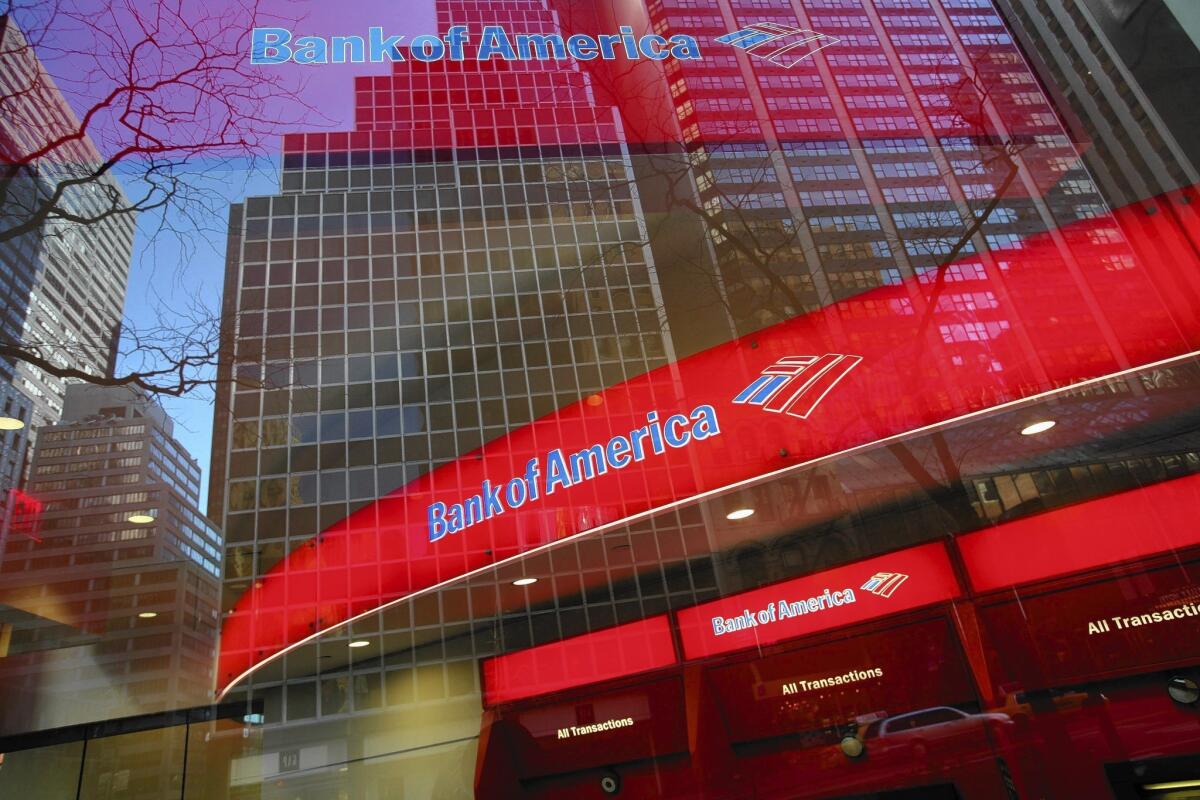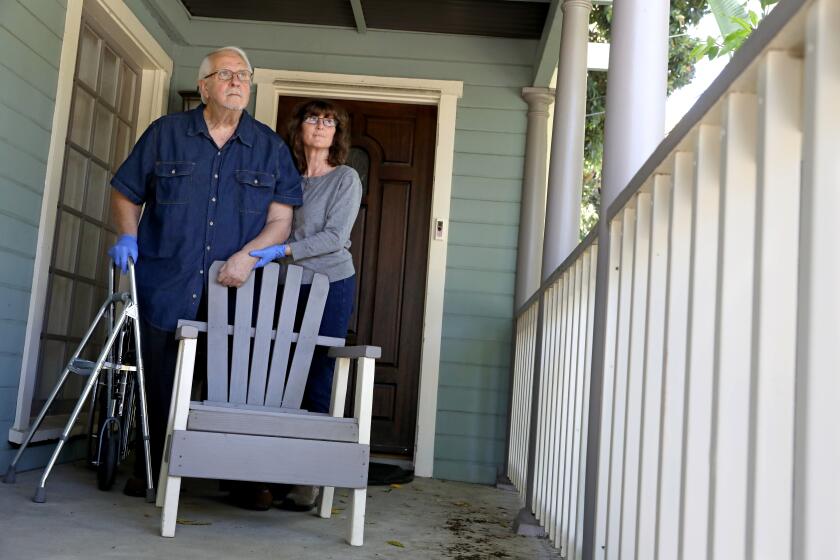Big banks ready to unleash a flood of applications for new small business loans

- Share via
Big U.S. banks are preparing to flood loan applications into the government’s emergency financing program for small businesses the moment Congress replenishes it with $320 billion in additional funding. Packets ready to go at just a few of the largest firms stretch into the tens of billions of dollars.
The pressure is particularly high on Wells Fargo & Co. and Bank of America Corp. after they lagged behind smaller rivals in helping legions of business customers tap the Paycheck Protection Program’s initial $349 billion in funding. Bank of America had arranged roughly $5 billion by the time the initial funding was depleted last week, according to people with knowledge of the matter, ranking below smaller rivals, including Truist Financial Corp. and PNC Financial Services Group Inc. Wells Fargo organized a mere $120 million.
The companies, which have said they sought clarity on rules from the Small Business Administration, have since faced withering criticism from longtime clients who tried in vain to get applications processed to weather the COVID-19 pandemic. Many have flocked to social media, recounting that bankers advised them to try community banks instead. Some have sued.
Independent businesses struggle to survive as federal government fails to deliver payroll protection loans.
“It’s definitely not a good look for the big banks,” said Ian Katz, an analyst at Capital Alpha Partners in Washington. “The second time around, they should have a better feel for how to deal with it.”
JPMorgan Chase & Co. arranged more loans than any other company in the first round, about $14 billion, but a number of regional and community banks punched far above their weight in the chaotic rush for a lifeline this month. Some smaller banks said afterward that they deployed hundreds of employees to manually enter paperwork, while larger lenders paused to get clarity on rules and spent days trying to automate the process.
Now, some of those efforts may give giant banks an edge in the second round.
Wells Fargo assigned thousands of people to process customer paperwork and set up software to speed submissions to the SBA, according to a person briefed on its preparations. Wells Fargo said last week it invited more than 450,000 customers to apply for a total of about $50 billion of financing, “which we stand ready to submit.”
Still, the system will depend in part on interacting with the SBA’s platform known as E-Tran, which froze intermittently during the first round of the massive program. Some lawmakers have expressed concern it won’t be able to handle the deluge once the program reopens, and some bank executives have doubts about how much of their pipelines they’ll be able to get through before the funds run out a second time.
The PPP was supposed to save our small restaurants and businesses. But where’s the money?
Bank of America Chief Executive Brian Moynihan said Wednesday that his company has received 390,000 applications seeking a total of more than $50 billion in SBA loans, and has continued to process them since the first round of funding ran out. The bank has had about 8,000 people involved in handling application packets, spokesman Bill Halldin said.
“Even if Congress completes the additional funding, it may not be enough to fill the demands,” Moynihan said. “But we’re ready to go.”
JPMorgan has fully processed more than 115,000 applications, totaling about $13 billion, which it can submit as soon as the program reopens, a spokesperson for the company said Wednesday. In the first round of funding, the bank’s commercial customers had a much higher success rate than smaller clients in getting financing. Since then, the lender has had thousands of people verifying payroll information and working with clients to correct errors, the most time-intensive parts of the process.
The next round of funding includes a $60-billion carve-out for small lenders. That was important for Congress to do because although community banks participated early and more aggressively in the first round than some larger banks, they’ll be competing this time with large banks fully active, said Paul Merski of the Independent Community Bankers of America.
“Now that the program’s been up and running, the largest lenders with armies of loan officers can dominate the funding,” Merski said.
More to Read
Inside the business of entertainment
The Wide Shot brings you news, analysis and insights on everything from streaming wars to production — and what it all means for the future.
You may occasionally receive promotional content from the Los Angeles Times.












